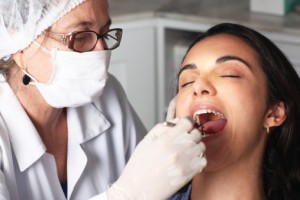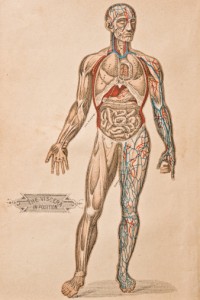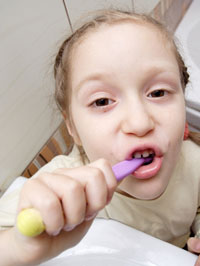 Ever heard the phrase, “you’ve gotta be cruel to be kind?” It has never been truer than when referring to gum disease treatments. Periodontal disease affects as much as 80% of US adults, but the way dental practitioners handle periodontal treatments may be part of the problem. Patients avoid periodontal treatment due to lack of treatment urgency, not fully understanding necessary treatments, and money. Many dentists hesitate to fully explain and recommend periodontal therapy because they fear patients will simply cancel appointments due to the added cost. Instead, dentists tend to try the “nice” approach – recommending periodontal appointments every three months but billing them as regular dental cleanings during six month checkups. However, by changing the focus of periodontal disease treatment to communicating clearly, emphasizing assessment and prevention, and working with patients to maximize insurance benefits, dentists can better equip patients to receive the dental care they need.
Ever heard the phrase, “you’ve gotta be cruel to be kind?” It has never been truer than when referring to gum disease treatments. Periodontal disease affects as much as 80% of US adults, but the way dental practitioners handle periodontal treatments may be part of the problem. Patients avoid periodontal treatment due to lack of treatment urgency, not fully understanding necessary treatments, and money. Many dentists hesitate to fully explain and recommend periodontal therapy because they fear patients will simply cancel appointments due to the added cost. Instead, dentists tend to try the “nice” approach – recommending periodontal appointments every three months but billing them as regular dental cleanings during six month checkups. However, by changing the focus of periodontal disease treatment to communicating clearly, emphasizing assessment and prevention, and working with patients to maximize insurance benefits, dentists can better equip patients to receive the dental care they need.
Continue reading Do Nice Dentists Finish Last? – Do Dentists Have to be Cruel to be Kind?
Tag: brushing and flossing
The Oral-Systemic Connection
 We live in an era of health consciousness, and that’s a good thing. Many people try to exercise and eat right. But being healthy is not simply a matter of what you put in your mouth, it’s also dependent on how you take care of your mouth. More and more evidence shows that there is a direct link between oral health and overall health.
We live in an era of health consciousness, and that’s a good thing. Many people try to exercise and eat right. But being healthy is not simply a matter of what you put in your mouth, it’s also dependent on how you take care of your mouth. More and more evidence shows that there is a direct link between oral health and overall health.
The oral-systemic connection characterizes the link between diseases and conditions in the mouth and health problems throughout the body. For example, periodontal or gum disease—called gingivitis in its early stages and periodontitis later—is caused by bacteria that can have access to the bloodstream when gum tissue bleeds, a common symptom of gum disease. Thus, preventing or treating gum disease and other oral infections early can be critical to avoiding secondary health concerns. So, those bi-annual dental checkups are more than just a matter of clean teeth. They can mean the difference between life and death.
Medical Conditions that Start in the Mouth
While research continues, the following is a partial list of medical conditions and diseases that have already been found to have a connection to oral health:
- Heart disease
- Stroke
- Osteoporosis
- Diabetes
- Some forms of cancer
- Some autoimmune disorders
- Low birth weight in newborns
Furthermore, the importance of maintaining oral health in order to have a proper diet and nutrition cannot be understated. People who have missing teeth are often unable to eat raw fruits and vegetables and other healthy foods that require chewing. Therefore, they choose softer foods that tend to be higher in saturated fats and sugar, both of which can have detrimental effects on the body when over consumed.
The Oral-Systemic Connection and You
What can you do to keep your oral-systemic connection healthy? First of all, brush your teeth and floss twice each day. Be sure to floss well below the gum line where bacteria hide. Secondly, see your dentist at least twice each year for a checkup. With regular visits, you and your dentist will better be able to recognize changes in your oral health and fend off any conditions that could compromise your general health.
Make Your New Year’s Resolution Count with Biannual Dental Checkups
 2014 is rapidly coming to a close, and New Year’s Day is just around the corner. People from all around the world are coming up with ideas for their New Year’s resolutions, hoping to make this the year they make great strides toward self-improvement and better health. As we all prepare to welcome 2015 in style, we’d like to take a few moments to suggest one resolution that is not only easy to keep but incredibly rewarding as well.
2014 is rapidly coming to a close, and New Year’s Day is just around the corner. People from all around the world are coming up with ideas for their New Year’s resolutions, hoping to make this the year they make great strides toward self-improvement and better health. As we all prepare to welcome 2015 in style, we’d like to take a few moments to suggest one resolution that is not only easy to keep but incredibly rewarding as well.
Dental Checkups for the Whole Family
Biannual checkups and cleanings are critical components of any oral hygiene regimen. They present you with the perfect opportunity to ask your dentist any questions you may have about your teeth and gums, as well as any other concerns you may have at the time. These simple visits also include a thorough exam and cleaning, two things your teeth desperately need to stay healthy for life.
Unfortunately, many people still believe that it’s fine to skip out on their routine checkups because they haven’t noticed any problems that warrant a dental visit. The problem with that line of thinking is that not every oral health concern presents with noticeable symptoms. The early stages of gum disease, for example, may be virtually undetectable. Small cavities – particularly those that form between the teeth – may be difficult to see or feel until they have progressed to a more advanced stage of decay. Even a root canal infection may slip under your radar without the practiced eyes of a dentist to spot the signs with a detailed x-ray.
The great news about dental checkups is that they are covered by most dental insurance plans; you may not have to pay a single penny to get your teeth cleaned by a dedicated professional!
Make the Smart Resolution Today!
While vowing to eat healthily, save money, and get in shape are all viable and popular resolutions, we suggest placing more emphasis on your oral health this year as well. Your mouth serves as a portal to the rest of your body, and the status of your teeth and gums can potentially affect your overall health. This New Year’s Eve, make the decision to treat your smile well with routine preventive visits at your local dental office. You’ll be glad you did.
Don’t Just Brush Your Teeth… Brush Your Teeth Correctly
 Most people know that good oral hygiene includes brushing your teeth at least twice a day. And for most, those two times are usually in the morning—as you’re rushing to work or getting the kids off to school—and at night, when you’re fighting to keep your eyes open before falling into bed. Regardless of whether your day is beginning, ending or somewhere in between, proper brushing is worth the time and effort for good oral health.
Most people know that good oral hygiene includes brushing your teeth at least twice a day. And for most, those two times are usually in the morning—as you’re rushing to work or getting the kids off to school—and at night, when you’re fighting to keep your eyes open before falling into bed. Regardless of whether your day is beginning, ending or somewhere in between, proper brushing is worth the time and effort for good oral health.
First off all, did you know that proper brushing requires at least two minutes? Most adults spend a fraction of that time brushing their teeth every morning and night. Try looking at the clock when you start brushing, then brush normally and check the time when you’re finished. Chances are you didn’t spend enough time to thoroughly clean your teeth. To really do a good job and ensure better oral hygiene, spend two minutes brushing.
What is the Best Technique for Brushing Teeth?
When brushing your teeth, it’s important to hold your toothbrush at a 45 degree angle against the gum line and sweep or roll the brush away from your gums. Don’t brush side to side, which can scrape your gums. And be sure to use short strokes as you brush away from your gums.
Start out cleaning the outer surface of your upper teeth and then your lower teeth. Continue by brushing the inner surface of upper and lower teeth. Then, brush the chewing surfaces of your teeth, concentrating on your molars. Finally, be sure to brush your tongue, too.
Tools for Proper Brushing
Always choose a soft brush with round-ended bristles. Stiff bristles can hurt your gums. A powered toothbrush can be a good choice, too, especially if you have difficulty brushing because of limited manual dexterity. The type of toothpaste you choose is an individual matter. There are a variety of toothpastes to address a variety of concerns from teeth whitening and cavity prevention to eliminating tartar and reducing teeth sensitivity. Talk with your local dentist about which toothpaste is best for you.
Kiss Me, I’m Irish! Oral Health Tips for a Happy St. Patrick’s Day
 St. Patrick’s Day presents a great opportunity to celebrate with friends and family in true Irish fashion – with amazing food, freely flowing beverages, and festive clothing in every shade of green imaginable. As you gear up to join in on the merrymaking, keep these handy oral health and hygiene tips in mind for a truly happy holiday.
St. Patrick’s Day presents a great opportunity to celebrate with friends and family in true Irish fashion – with amazing food, freely flowing beverages, and festive clothing in every shade of green imaginable. As you gear up to join in on the merrymaking, keep these handy oral health and hygiene tips in mind for a truly happy holiday.
Everything in moderation. It’s entirely expected that millions will enjoy a couple of pints at their nearest pub or a few beers at home to celebrate St. Patty’s Day, but now is as good a time as ever to remember what alcohol can do to your oral health. Too much to drink can contribute to tooth decay and periodontal disease. Enjoy yourself, but not to excess!
Stay hydrated! Drink plenty of water during the course of your holiday revelry to maintain your mouth’s healthy pH balance. This will also help your head and body feel better in the morning, so it’s worth remembering.
No matter how late you get home…Be sure to brush and floss as usual. The acid in beer, ale, and other alcoholic beverages can be severely damaging to tooth enamel. Just a few minutes of preventative maintenance to save your smile, and then you can climb into bed. Your teeth will thank you!
And of course, if you are lucky enough on St. Patty’s Day to receive a kiss (Irish or not), make sure to brush and/or use a good mouthwash after all of that delicious corned beef and cabbage! If you have any questions or concerns about your overall oral health, on St. Patrick’s Day or otherwise, contact your local dentist’s office today.
5 Mistakes You Might Make While Flossing
 Flossing is a crucial part of dental hygiene, and one that shouldn’t be taken lightly; after all, it’s a tried-and-true method for getting rid of stubborn food particles that settle in hard-to-reach places between teeth, as well as an effective way to disrupt cavity-causing bacteria and keep them getting too comfortable. Of course, you might be thinking: how hard is it to drag some string between your teeth? Harder than you might think. Countless people make casual errors every day when flossing, and while it might not seem like a big deal at the time, you could find yourself in need of fillings or other restorative dental work before you know it. Here are five common mistakes that are made during flossing that you should watch out for:
Flossing is a crucial part of dental hygiene, and one that shouldn’t be taken lightly; after all, it’s a tried-and-true method for getting rid of stubborn food particles that settle in hard-to-reach places between teeth, as well as an effective way to disrupt cavity-causing bacteria and keep them getting too comfortable. Of course, you might be thinking: how hard is it to drag some string between your teeth? Harder than you might think. Countless people make casual errors every day when flossing, and while it might not seem like a big deal at the time, you could find yourself in need of fillings or other restorative dental work before you know it. Here are five common mistakes that are made during flossing that you should watch out for:
When You Use the Same Section of Floss the Entire Time
As we said above, flossing removes harmful bacteria from between your teeth. Why would you want to move that bacteria around your mouth into new areas instead of getting rid of it altogether? It might seem wasteful, but when you use the exact same area of floss on multiple teeth, you can replace plaque that’s already been removed into a brand-new home.
When You Skip the Teeth in the Very Back
While some of your teeth may have an open space next to them, it’s still important to work the floss behind them and do some cleaning. By doing this, you can make sure to remove bacteria that sometimes finds its way between your tooth and gums.
When You Snap the Floss between Your Teeth
Some of your teeth have very tight adjoining spaces. When you notice an area like this, try not to force the floss so that it jumps down against your gums. Instead, work the floss back and forth until it slides through. Snapping the floss not only hurts your gums, but it can also cause them to recede. Gum disease might not be far behind, too.
When You Quit Because Your Gums Start Bleeding
We understand that the sight and taste of blood can be scary sometimes, but don’t worry! You’re not hurting your gums. You’re just suffering from gingivitis, a condition that happens when your body sends more blood to the gums so that they can fight off growing plaque. You can alleviate this condition by removing that plaque with flossing. After a few days of dedicated flossing, your gums should return to normal!
When You Floss Aimlessly Without Keeping Track Of Your Teeth
You have a fair amount of teeth, and when you’re flossing, it can be easy to become distracted and accidentally skip one or two. Creating a plan that you follow whenever you floss will guarantee that you leave no area untouched. As long as you stick to it, you shouldn’t have any problems!
Just be sure to watch out for these common mistakes, and keep flossing! Your teeth will thank you.
5 Tips for Tip-Top Teeth
 Dental caries (cavities) is the most prevalent childhood disease, and 90% of adults have had a cavity. Gum disease is responsible for 70% of adult tooth loss. A few simple habits could help you reduce your risk for cavities and gum disease – and improve your potential for keeping natural teeth long into your golden years. Kids and adults alike can benefit from these 5 quick and easy oral health tips. Some you’ve known since kindergarten, while others may be news. Continue reading 5 Tips for Tip-Top Teeth
Dental caries (cavities) is the most prevalent childhood disease, and 90% of adults have had a cavity. Gum disease is responsible for 70% of adult tooth loss. A few simple habits could help you reduce your risk for cavities and gum disease – and improve your potential for keeping natural teeth long into your golden years. Kids and adults alike can benefit from these 5 quick and easy oral health tips. Some you’ve known since kindergarten, while others may be news. Continue reading 5 Tips for Tip-Top Teeth